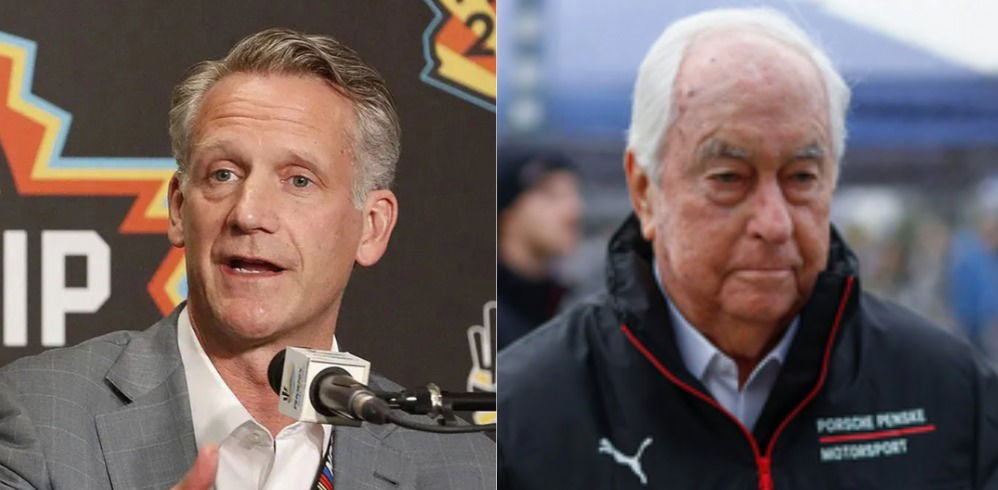

The 2025 IndyCar season has unfolded as a powerhouse of precision and performance. Alex Palou has surged ahead in the drivers’ standings, claiming 626 points over 15 starts. With eight wins, Palou’s performance underscored remarkable adaptability and consistency. Meanwhile, Chip Ganassi Racing has secured its 17th team championship in IndyCar history, matching Team Penske. However, with Honda winning the manufacturers’ championship, Roger Penske’s establishment risks losing a key partner.
Watch What’s Trending Now!
2025 marks a dominant sweep for Honda Racing Corporation USA, as they secured the manufacturer’s championship with two races remaining, matching a level of superiority not seen since their last run from 2018 to 2021. It is their 7th manufacturers’ title in the NTT IndyCar Series and their 11th overall in American open-wheel racing. In an astounding season, Honda-powered teams have collectively won 12 out of the 15 races, across all track types, including the Indianapolis 500. Barry Wanser, Chip Ganassi Racing’s senior manager of racing operations, praised Honda’s engine performance and fuel efficiency, noting that their winning formula was built on rare power and economy.
Following the clinch of the 2025 manufacturers’ championship, Honda Racing Corporation USA held a press conference featuring HRC USA President David Salters. When asked about Honda’s future and how the title might influence those plans, his response was notably circular and confusing to some: “We love IndyCar. We’ve been here for 30 years I believe doing pretty well and very well this year. We love IndyCar. We love the racing. We don’t talk about our private businesses. We love IndyCar. We love what we’re doing, but we don’t discuss, we look at where we’re going for the future, but that’s a Honda thing. We don’t really discuss our private businesses in public.” His repetition of words, coupled with an insistence on staying silent about future strategy and planning, struck many as evasive and left the media scratching their heads on Honda’s true intentions.
.@HondaRacing_US just held a presser after clinching the ’25 @IndyCar manufacturers’ title.
I asked HRC USA president David Salters where the company was in its process of determining its future & how this title run might affect that.
Salters:
“We love IndyCar. We’ve been here…
— Nathan Brown (@By_NathanBrown) August 24, 2025
But just months ago, NASCAR Commissioner Steve Phelps confirmed that NASCAR was “very close” to landing a fifth manufacturer, with Honda repeatedly cited as a landing candidate. Adam Stern echoed this statement, noting Honda has been heavily rumored to be in negotiations with the sanctioning body. On the other hand, Brad Keselowski has been rumored to be involved in discussions with Honda, and Roush Fenway Keselowski Racing has emerged as a potential team partner if a deal materializes.
Those familiar with the inner workings of NASCAR say that bringing in another OEM would inject fresh funding, marketing value, and technical innovations, which would benefit teams and the sport alike. In fact, sources close to the discussions suggest that Honda has been weighing a move to NASCAR as early as 2027, a shift that would upend the motorsport landscape and offer the automaker a broader, more engaged fan base.
For now, motorsport fans were quick to sense the subtext in Salters’ press remarks. Soon, after discussions about Honda’s future began trending across forums like Reddit, with commentators posting that a shift of charters or factory-backed entries could signal an OEM-led restructuring of the Cup Series. Some even think that it might be a seismic realignment of American racing’s power dynamics.
Mixed reactions across IndyCar and NASCAR communities
One fan grew extremely suspicious of the tone of the message, writing, “Saying “We love…” 4 times in that short answer of which saying “We love IndyCar.” 3 times just makes me go hmmm.” The repetition didn’t come across as heartfelt enthusiasm, but rather as an oddly insistent refrain that raised eyebrows. These kinds of repetitions echo vague platitudes during the post-title presser, pointing fans to pick apart the subtext quips about hidden truths and corporate diplomacy.
Another fan added to the suspicion and growing sentiment across social media forums, writing, “Yep, they’re gone after this year is what I get from Salters response.” Fans have noted that the continuous, almost defensive affirmation felt less like pride and more like a carefully crafted farewell. It resonates with fans who are accustomed to reading between the lines, much like when a star athlete expressed boundless gratitude just before signing elsewhere, often signaling what they are not saying.
Some fans sarcastically quipped, saying, “Sounds like parents about to tell their kids they’re getting divorced.” The uncanny parallel with that of growing tensions in a marriage and the repeated “we love IndyCar” echoes like a refrain to soften any admissions of change. Although it might not be as important as fans are making it, the real reason for such a response will only be revealed once a formal deal is struck or blatantly rejected.
Another fan put it out almost straightforwardly, writing, “Just tell him if he wants to say “no comment”, it’s a lot less work for yall to transcript and tweet if he would just say “no comment.”” This sentiment isn’t just about simplicity; it is about authenticity. Consider how, in other sports, fans have leaned into clear, minimalist replies. For instance, players caught in trade rumors sometimes respond with a quiet “no comment,” and the result is pretty clear: the chaos eases, headlines cool, and the messaging remains tight. When a public exec opts for affectionate evasions, it opens the door for endless speculations.
Finally, one X user likened Salters’ response to a game, writing, “Salters playing “He loves me, he loves me not” with roses at night expecting the call from Phelps. On a serious note, it doesn’t make Commercial sense for Honda to stay since there is no face value, they r just Manufacturers of a engine, thus going to NASCAR makes more sense.” Indeed, many insiders have noted Mercedes-style hybrid tech and better ROI in stock car racing, while Honda has privately expressed frustration over IndyCar’s high development costs and lack of third-party investment, factors that mirror earlier concerns voiced by the brand’s motorsport leadership.
In the end, Honda’s uncertain stance highlights just how fragile manufacturer loyalty can be in modern motorsports. The coming months may decide whether this chapter closes in IndyCar history or opens a bold new one elsewhere.



